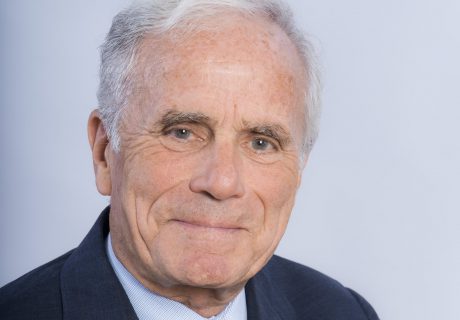Philippe Louis-Dreyfus: The case for slow steaming

Throughout this decade there has been a lone voice calling for ship speed regulations. All of a sudden however Philippe Louis-Dreyfus has found powerful backing from across the world and his tireless go slow campaign could finally become reality soon, taking centre stage at next week’s Marine Environment Protection Committee (MEPC) meeting at the London headquarters of the International Maritime Organization (IMO).
Speaking from Athens in an exclusive interview with Maritime CEO, the 74-year-old president of Louis Dreyfus Armateurs (LDA) is not jubilant yet – his battle is far from won, but his movement has bolted out of the blocks fast in recent months.
Louis-Dreyfus recounts his frustrations with BIMCO and the European Community Shipowners’ Associations (ECSA), two bodies he has been president of in recent years, both of whom failed to support his slow steaming regulation campaign. The movement did get plenty of air time at last year’s Posidonia in Athens, where Louis-Dreyfus found kindred spirits among Greek owners, but it was not until a lunch this January at the Élysée Palace with French president Emmanuel Macron that the campaign received the shot in the arm it needed. Louis-Dreyfus brought the matter up with the president and as he recalls, “He reacted immediately. He talked about it and then supported it. His support was instrumental.”
In late March France submitted an official slow steaming proposal to IMO as an interim measure to help shipping move towards its 2030 goal of cutting greenhouse gas emissions by 40% compared to 2008 levels, a plan that has also been backed by Greece. On April 30, an initial 107 shipping CEOs from around the world, including LDA, sent the IMO a much reported open letter adding their support to the go slow movement. In the intervening 11 days, more and more CEOs, many hailing from Athens where Louis-Dreyfus is at present, have added their signature to the letter.
The idea will be debated next week and finds itself principally up against an alternative plan pitched by Denmark, Germany and Spain who are calling for an incentives-backed, goal-based approach as a short-term measure to cut shipping’s carbon footprint.
In conversation with Maritime CEO, Louis-Dreyfus says he’s grateful for all the belated backing he has received, reserving special praise for the “loud support” from Star Bulk’s Petros Pappas and Dynacom’s George Prokopiou.
The Frenchman blasts the naysayers using the extra new tonnage argument as “stupid”. Opposition to Louis-Dreyfus’s proposal has centred largely around the argument that slower moving ships will inevitably lead to more ships with today’s existing technology being ordered, something the Parisian dismisses as incorrect.
“Why should shipowners order more ships. These ships are not needed. The charterers will decide,” Louis-Dreyfus says, adding that, as an example, an iron ore company might gets its cargo on a Thursday not a Wednesday causing some supply chain kinks that can quickly be ironed out after a few weeks.
The greatest sector opposed to the idea is the container shipping community, but as Louis-Dreyfus points out the French submission to IMO makes allowances for certain ship types.
“I believe if we stick to dry and wet bulk shipping this will be enough as that will be 65% of all tonnage,” Louis-Dreyfus says, adding that the container argument is, in his view, off base anyway as the ships have become much bigger and slowed down dramatically over the last 10 years.
Not contained in the French submission, but another pioneering idea championed by Louis-Dreyfus, is a lowering of the mandatory ship scrapping age.
“I have been advocating for years at ECSA and BIMCO to scrap older tonnage,” Louis-Dreyfus says. He is in favour of instituting rules to scrap ships when they hit the age of 20, something that would inevitably alter the freight rate markets almost as much as his slow steaming plans.
Still, the scrapping campaign can wait. For Louis-Dreyfus, the focus is on deliberations next week at the IMO.
Louis-Dreyfus is adamant no other proposal than his can meet IMO 2030 decarbonisation goals, and he is also worried about refiners being able to deliver the right fuels at the “right price” come the start of next year’s IMO-mandated global sulphur cap.
On the likelihood of his proposal winning IMO approval, Louis-Dreyfus is level-headed, giving it a 50:50 chance.
“We face a strong opposition from owners and certain countries and IMO takes time to deliver decisions,” the shipping veteran concludes.
Splash will be reporting from MEPC in London next week.

Can someone please explain the engineering argument as to how slow steaming will put less GHGs into the atmosphere?
Isn’t this just a ploy to jerk the freight market?
No Andy, when you drive slower in your car it becomes more fuel efficient, same with ships
yes-but the voyage is longer- so the time in era/seca is prolonged
No, when you drive slower it will not become more fuel efficient, it will become less fuel efficient. The specific fuel consumption will increase at lower loads of engines. You will consume less fuel, that is true, because the ship will have a slower speed, but it will not be more efficient regarding specific fuel consumption.